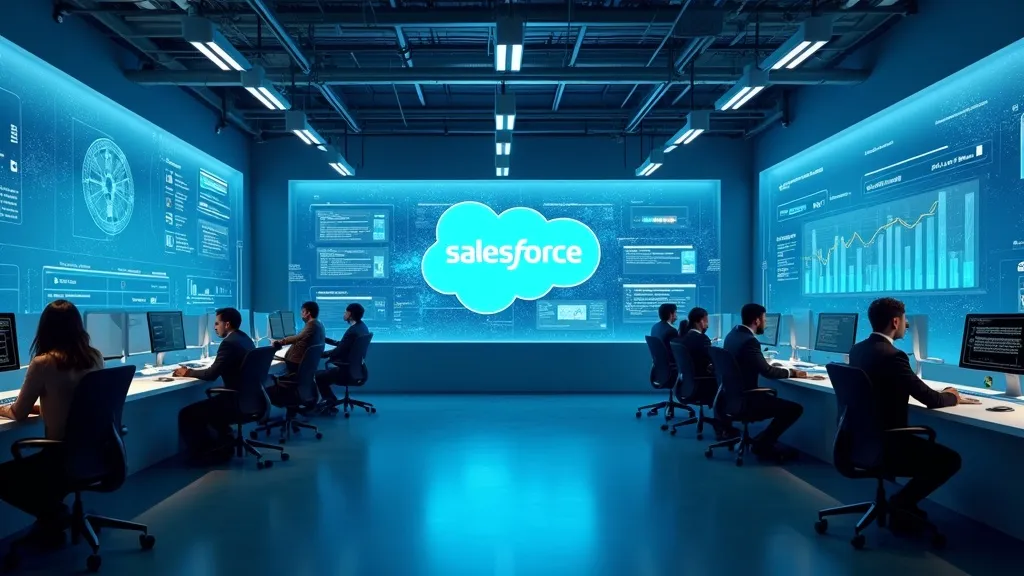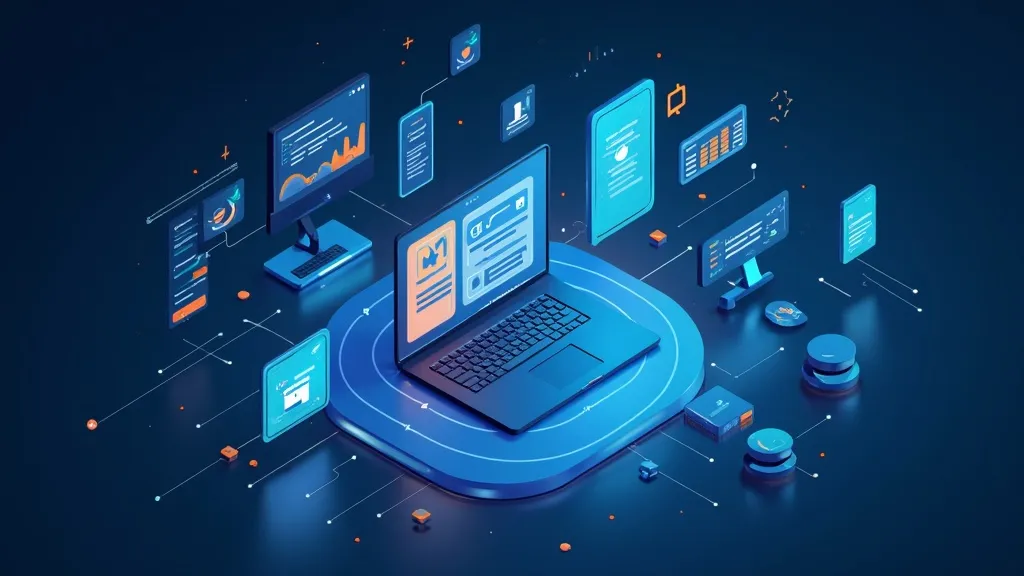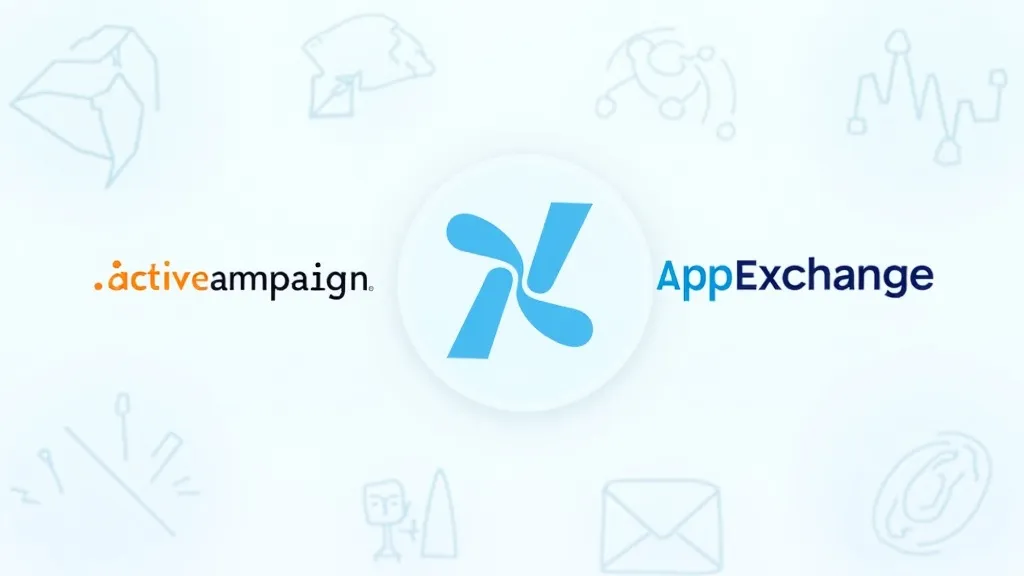Navigating Salesforce Omni-channel CRM
The Salesforce Omni-channel CRM is an innovative platform designed to optimize customer interaction across multiple channels seamlessly. As a robust customer relationship management (CRM) tool, it integrates various communication paths including email, social media, and direct chat, facilitating enhanced customer service and engagement through a unified interface, setting the benchmark in CRM solutions.

The Evolution of CRM Systems
Customer Relationship Management (CRM) systems have come a long way since their inception. Emerging as basic contact databases, they've matured into the highly sophisticated platforms we see today. The initial versions of CRM software were primarily focused on managing customer contact information and tracking sales processes. However, advancements in technology and the increasing need for better customer engagement have significantly changed the landscape. Among the leaders in this arena is Salesforce, particularly with its Omni-channel CRM solution. This platform exemplifies the cutting-edge CRM capabilities that empower businesses to manage and optimize customer interactions across a wide array of communication channels.
Over the years, CRM systems have evolved from simple tools that stored customer information to comprehensive platforms that offer a suite of functionalities. They now integrate various aspects of business operations, including marketing automation, sales management, customer service, analytics, and more, helping businesses to create a holistic approach to customer engagement. These systems have become integral to building customer loyalty and improving overall business performance. As companies increasingly recognize the importance of personalized customer experiences, modern CRM solutions are designed to provide deeper insights into customer behavior, preferences, and trends.
The evolution of CRM can be tracked through several key phases, beginning with basic data collection and storage in the late 1980s and early 1990s, transitioning to more advanced processes and technology integrations in the 2000s. By the 2010s, cloud-based CRM solutions surged in popularity, allowing businesses to access their systems from anywhere and enhance collaboration across teams. The arrival of AI and machine learning has further revolutionized the field by automating tasks, providing predictive insights, and enabling advanced analytics.
Today, the focus of CRM systems extends beyond mere transaction tracking. Instead, they are geared towards fostering customer relations through proactive engagement and personalized services. This evolution has paved the way for innovative solutions like Salesforce Omni-channel CRM, which exemplifies the future of customer experience management.
Understanding Salesforce Omni-channel CRM
Salesforce Omni-channel CRM is designed to seamlessly integrate various customer communication channels into a unified dashboard. This innovation is pivotal for businesses striving to enhance customer experience and operational efficiency. By enabling real-time interaction across emails, social media, phone calls, and direct chats, Salesforce ensures that customer engagement remains consistent and synchronized, helping businesses maintain a competitive edge in today's rapidly evolving market.
The essence of Omni-channel CRM is to provide a fully integrated approach where customer interactions are not limited to traditional channels. Instead, they leverage platforms like online chat, SMS, and mobile applications, creating a coherent customer journey. Customers today expect fluid interaction across channels; for instance, they may initiate contact via social media but expect to continue the conversation via email or phone if the situation demands. Salesforce’s Omni-channel capabilities cater to these expectations by ensuring that all customer interactions, regardless of the channel used, are logged and accessible for any representative engaging with the customer.
Moreover, Salesforce’s underlying architecture allows businesses to tailor their customer engagement strategies effectively. By utilizing robust data analytics, organizations can gain insights into customer preferences and behavioral patterns, thereby enabling them to optimize their engagement approaches. The use of AI within the Salesforce ecosystem further augments the ability to predict customer needs and personalize experiences in a truly impactful way.
Key Features and Benefits
The Salesforce Omni-channel CRM offers a multitude of features that facilitate effective customer engagement:
- Unified Customer View: Offers a consolidated perspective of customer interactions, providing insights that help businesses make informed decisions based on a single source of truth. This holistic view allows for better understanding and tracking of customer journeys and histories, enabling agents to provide tailored support.
- Real-time Channel Integration: Empowers businesses to engage customers through their preferred platform, ensuring a responsive and satisfying experience. With instant access to information across all communication channels, agents can address inquiries efficiently and accurately, enhancing overall customer satisfaction.
- Intelligent Routing: Automatically directs inquiries to the most suitable agent based on their expertise and workload, thereby enhancing efficiency and reducing response times. Proper routing minimizes the frustration customers feel when they have to explain their issues to multiple representatives, leading to a smoother resolution process.
- Analytics and Reporting: Provides comprehensive data analytics to track performance metrics, customer satisfaction levels, and service trends. This empowers businesses with the data needed to refine their strategies continually, ensuring they remain competitive in their respective markets.
- Automation Capabilities: Streamlines repetitive tasks through automation, freeing up agents to focus on high-value interactions. By automating follow-ups, reminders, and reporting processes, agents can spend more time on customer-centric activities rather than administrative tasks.
- Customization Options: Offers extensive customization, allowing businesses to tailor their interface and functionalities based on their specific needs. This flexibility ensures that companies of all sizes and industries can leverage Salesforce's capabilities effectively.
Implementing Salesforce Omni-channel CRM
Transitioning to a robust CRM like Salesforce can seem daunting but is achievable through careful planning and execution. Below is a step-by-step guide to efficiently deploy this system:
- Needs Assessment: Evaluate your current CRM landscape to identify areas for improvement. Engaging stakeholders from various departments will provide insights into pain points and desired features, ensuring a well-rounded understanding of the organization's needs.
- Custom Solution Design: Work with Salesforce consultants to tailor the Omni-channel CRM to meet your business specifications. This process involves defining workflows, selecting appropriate integrations, and determining user roles.
- Data Integration: Migrate existing customer data into the new system, ensuring connections across all channels are established. It is critical to maintain data integrity and cleanliness during this process to prevent issues down the line.
- Training and Deployment: Provide comprehensive training to staff and gradually roll out the CRM to mitigate risk and encourage adoption. Training should offer hands-on experience with the platform and clarify how it can enhance daily operations.
- Continuous Support and Evaluation: Leverage Salesforce's support services and regularly assess the system's impact to drive enhancements. Engaging users for feedback and continuously iterating based on their experiences will contribute to long-term success.
It's essential to recognize that implementing a CRM system is not just about deployment; an ongoing process of optimization and adjustment is required. Engaging with the feedback provided by users after the CRM rollout can lead to the enhancement of features, processes, and workflows that align better with employee needs and customer expectations.
Comparative Analysis of Leading CRM Solutions
| Feature | Salesforce Omni-channel CRM | Competitor A | Competitor B |
|---|---|---|---|
| Customization | Extensive with multiple integrations | Moderate with fewer integrations | High but complex setup |
| Integration Capability | Seamless across platforms | Limited to proprietary software | Limited third-party support |
| Customer Support | 24/7 support with comprehensive resources | Standard business hours with additional charges for extra support | Limited to online resources |
The above comparative analysis illustrates how Salesforce distinguishes itself in the marketplace, especially regarding customization and integration capabilities. Its approach towards providing a broader ecosystem of services allows for significant flexibility, enabling organizations to connect their CRMs with other critical systems such as marketing automation, ERP solutions, and e-commerce platforms, which can further enhance the results yielded from CRM deployments.
Furthermore, customer support plays a crucial role in the successful implementation and ongoing satisfaction of any CRM system. Salesforce's 24/7 support ensures that businesses can address any issues that may arise without significant downtimes, providing businesses the confidence needed to rely on the platform as a backbone for their customer engagement efforts.
Real-world Applications and Case Studies
Salesforce Omni-channel CRM has a track record of transforming businesses by streamlining their customer engagement processes. For example, a retail giant employing Salesforce Omni-channel was able to halve their response time, significantly boosting customer satisfaction and loyalty. By integrating their customer service channels into one platform, the retailer saw measurable increases in conversion rates and a noticeable reduction in customer churn.
Another interesting case study involves a healthcare provider that utilized Salesforce to manage patient interactions more effectively. By implementing the Omni-channel capabilities, they were able to enhance communication between patients and healthcare professionals. This resulted in improved appointment scheduling processes and patient follow-up care. The healthcare organization was able to witness a 30% increase in patient satisfaction scores within six months of implementing the system.
Additionally, a financial services firm leveraged Salesforce’s advanced analytics capabilities to better understand customer behaviors and preferences. Through comprehensive data reporting, they were able to pinpoint customer trends and tailor their services accordingly, resulting in a 25% increase in upsell opportunities. This type of data-driven decision-making underscores the impact of real-time insights provided by Salesforce, illustrating the potential benefits across various industries.
FAQs
What makes Salesforce Omni-channel CRM stand out? Salesforce provides a highly customizable and integrative approach, ensuring seamless customer communication over multiple platforms. Its extensive feature set combined with advanced analytics capabilities makes it a go-to solution for many businesses across different industries.
Is Salesforce Omni-channel CRM suitable for small businesses? Yes, it can be tailored for businesses of all sizes, offering scalable solutions to fit varying needs. Small businesses can benefit from Salesforce’s flexibility and comprehensive features, allowing them to grow without switching systems as their requirements evolve.
Can I track multiple communication channels simultaneously? Absolutely, the CRM is designed for managing multiple channels effectively in real time, ensuring no interaction is lost. This capability is essential for businesses that wish to maintain consistent and cohesive communication strategies.
How does Salesforce ensure data security? Salesforce places a strong emphasis on data security, employing robust measures such as encryption, regular security audits, and compliance with international regulations like GDPR. Businesses can feel secure knowing that their customer data is protected within the Salesforce ecosystem.
Can Salesforce integrate with other business tools? Yes, Salesforce offers extensive integration options through its AppExchange and APIs. This makes it easy for businesses to connect their CRM with other tools they use, such as email marketing platforms, project management software, and ERP systems, creating a more unified operational environment.
Conclusion
The Salesforce Omni-channel CRM represents the pinnacle of customer relationship management by not only integrating various channels but also providing strategic insights through data analysis. This powerful tool has proven indispensable for businesses aiming to enhance customer engagement, loyalty, and satisfaction. The ability to reach customers across numerous touchpoints and maintain a cohesive experience enhances the quality of service provided to customers while also giving businesses a critical edge in a competitive marketplace.
Implementing Salesforce effectively can propel your business towards more nuanced and efficient customer interactions. By prioritizing a customer-first approach and utilizing advanced technologies that CRM like Salesforce brings, companies can not only navigate the complexities of customer relationships but thrive in them. As the digital landscape continues to evolve, the role of a comprehensive, user-friendly, and capable CRM solution will only become more important.
In conclusion, investing in Salesforce Omni-channel CRM is not just about adopting a new software tool; it’s about transforming the way you approach customer interactions, engagement, and experiences. Embracing this evolution will place businesses on a trajectory towards greater customer satisfaction, loyalty, and ultimately, improved financial performance. In an age where customers have more choices than ever, standing out requires a strategic commitment to creating memorable interactions, making a robust CRM system an essential part of the business landscape.










